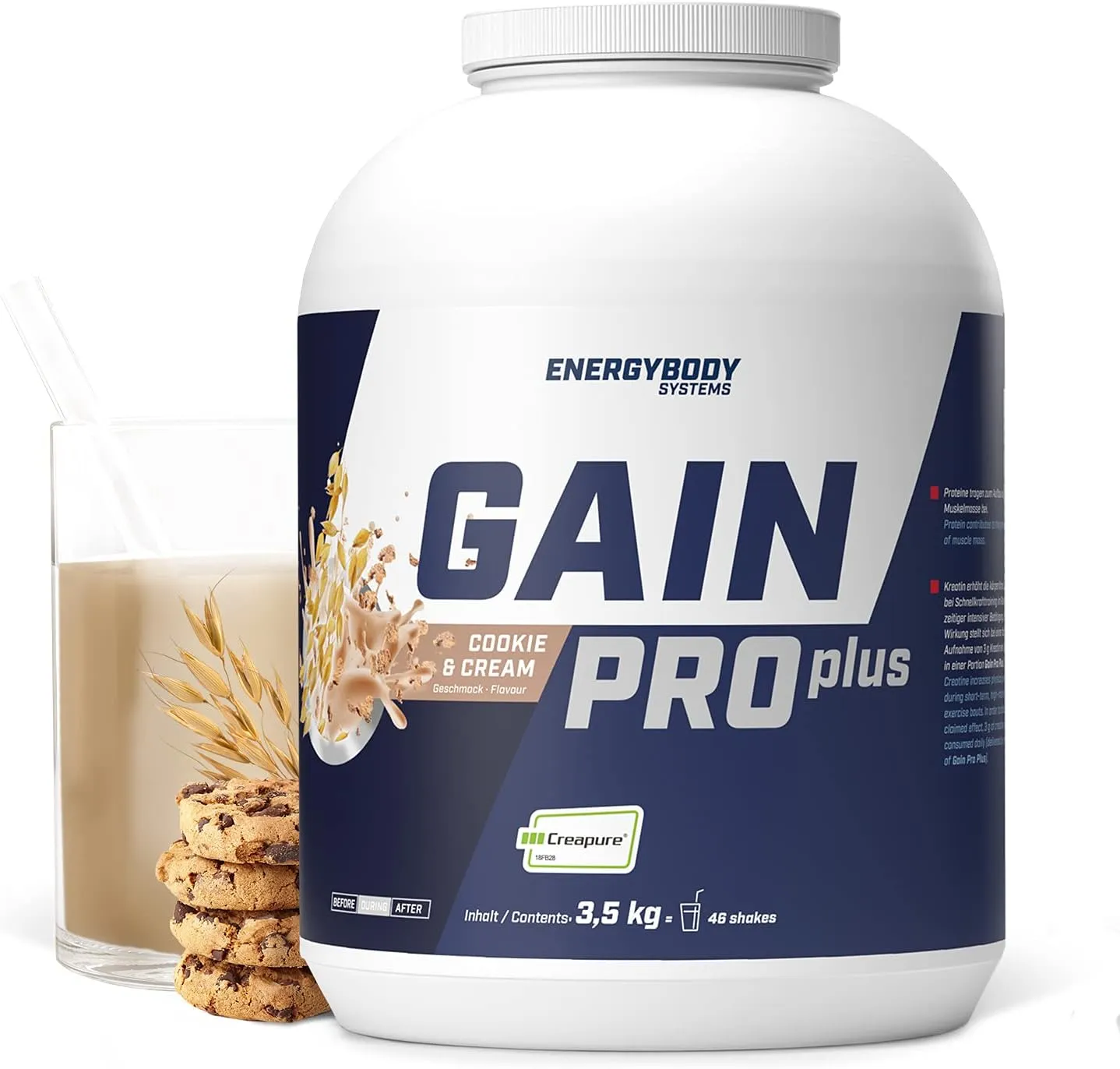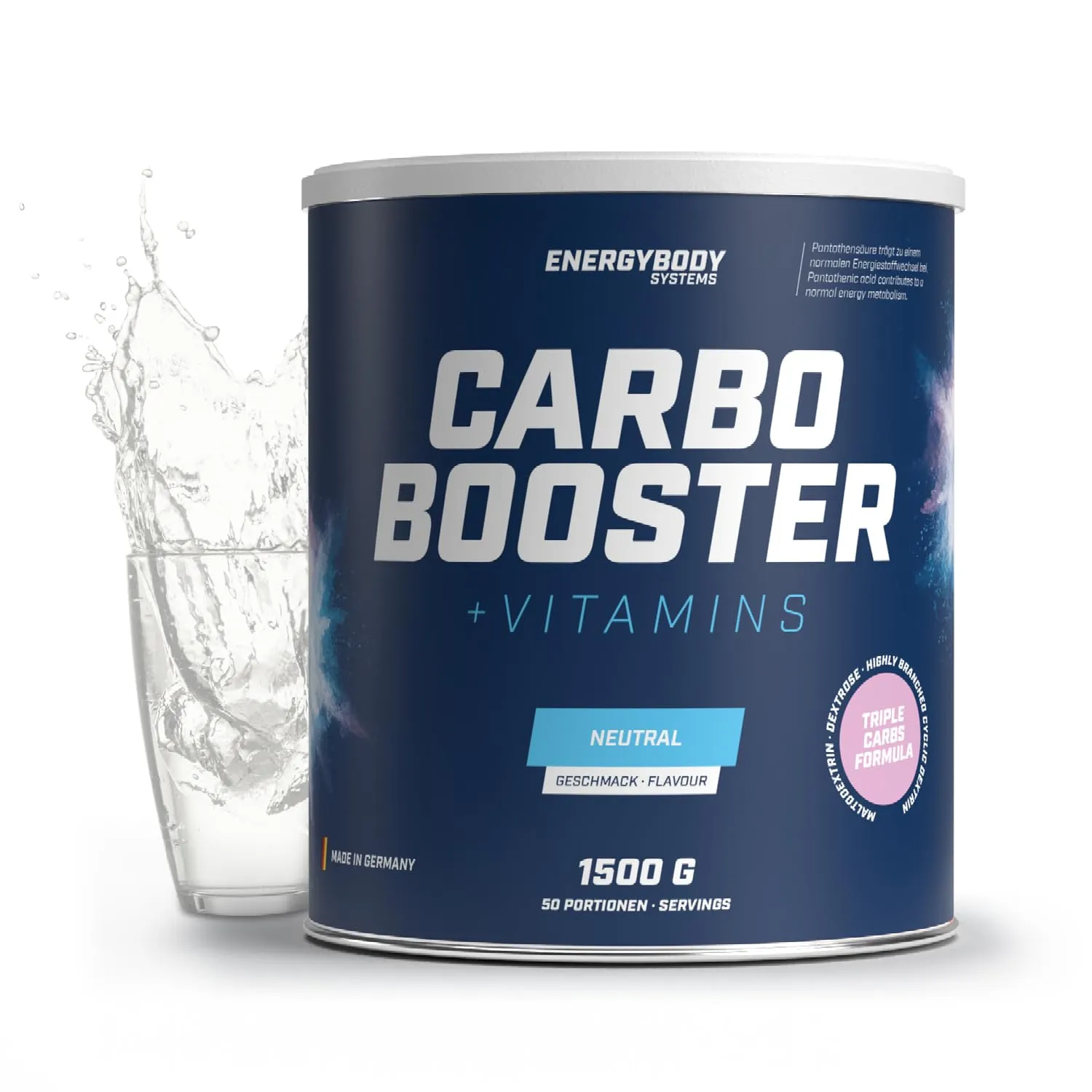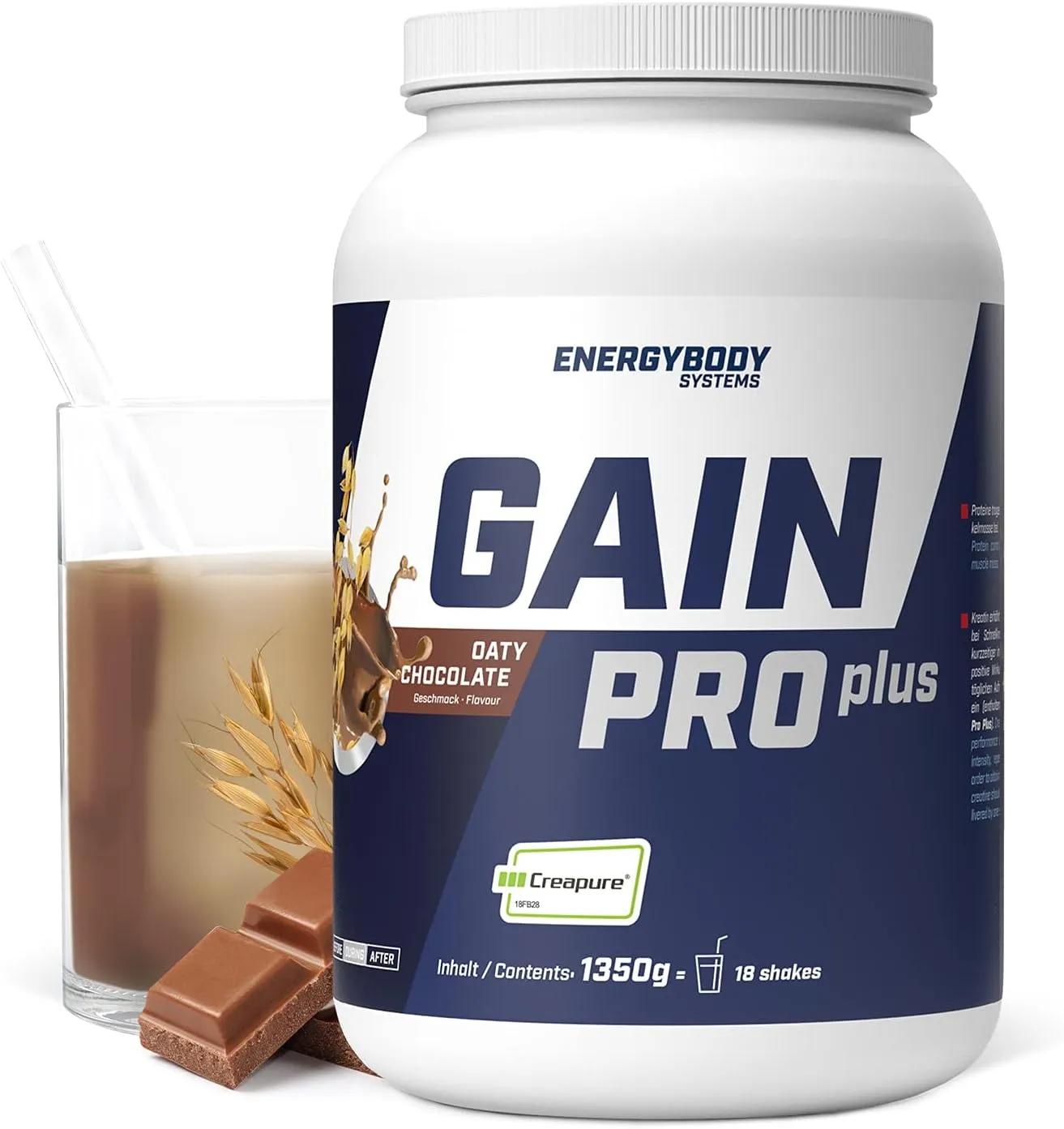Carbohydrates
Carbohydrates are not only important to have enough energy during sport, but also to quickly replenish glycogen stores after training. This promotes regeneration and, in combination with high-quality protein, also muscle building.
So-called weight gainers therefore consist of a combination of carbohydrates and proteins and usually also a portion of creatine. This mix is considered the ideal support for muscle building and is much more productive than proteins, carbohydrates or creatine alone.
Carbohydrates can even help to optimally absorb the creatine into the muscle cell and reliably fill the creatine stores. Perfect conditions for every athlete.
Carbohydrates - “fatteners” or performance guarantors for our body? We explain...
Everyone has heard it in recent years: carbohydrates and other energy sources such as fats make you fat. A whole branch of dieting is based on this statement. All low carb diets are more or less strictly against carbohydrates or other energy sources. Atkins diet, keto, LOGI and whatever the diets are called.
On the other hand, we see all the athletes who consume these nutrients for sustainable muscle building. They eat these energy sources like crazy and swear by them to get the best possible performance from their bodies and muscle mass. And almost none of them are fat. These athletes tend to be muscular and athletic.
How can that be? How can something like that happen? How can athletes look so super slim and athletic when these energy sources seem to make them so fat? Let's take a closer look.
Carbohydrates - the super fuel for our muscles
First of all, we need to take a look at what carbohydrates actually are and what foods we find them in. Foods such as rice, potatoes, pasta, muesli and bread probably come to mind first. But fruit and other cereals as well as some vegetables also have a high proportion of these energy sources. And sugar, of course. Individual sugars are the smallest units of energy sources that we have available.
Whenever you consume a carbohydrate-rich meal - a potato, for example - the nutrients contained in the potatoes are broken down by our digestive system until only glucose remains.
That's right: potatoes (and all other carbohydrates) are ultimately nothing more than a long chain of sugar molecules. You can really think of it like a necklace. Each bead is a sugar molecule. And the task of digestion is to open the chain and detach the individual beads from these long-chain carbohydrates. Our intestines can only absorb the individual pearls, not the entire chain.
The situation is slightly different with household sugar. This is because it is a mini-chain of two differently colored pearls. One pearl consists of glucose and the other pearl of fructose. Digestion is correspondingly fast here and a lot of sugar passes through our intestines into our bloodstream in a very short time.
Carbohydrates make sweet blood
Once the sugar has arrived in your blood, the blood sugar level in your body rises. We suddenly have more sugar than normal in our blood. Our blood is "sweet", so to speak. However, our body does not like this increased blood sugar level at all. A blood sugar level that is permanently too high can lead to serious health problems. For example, it can lead to nerve damage in the human body.
To prevent this from happening, our body has a hormone that lowers blood sugar levels. This is insulin. Insulin binds to our muscle cells and opens a \"gate\" so that the sugar can pass from the blood into the muscles or muscle mass. This reduces the blood sugar level to normal.
The problem: we don't have an infinite amount of space in our muscle cells. This is because these muscle cells, which are mainly created when building muscle, are structured a bit like garages. We can store sugar there. If the stores in our muscles are full, the body has to start an emergency program to get the sugar out of the blood. And this emergency program is quite simple: store excess carbohydrates in adipose tissue.
From fattening agent to performance guarantor
And here we can already build a bridge and explain why competitive athletes can handle these energy sources so well and other people get fat from the nutrients in their diet.
However, this is not entirely correct. Because these nutrients don't make you fat per se. They only make us fat if we eat too many of them in our diet. So whenever we consume too many calories overall, the garages in the body cannot empty and we end up building up fat through this supply of energy.
We can empty these garages through sport and the associated muscle building. And that's why these nutrients don't make athletes fat. Because through their sustained training and muscle building, they always ensure that the garages in the body and in the muscles are emptied. The carbohydrates in the diet then replenish the stores - and empty them again, etc.
The interesting thing about these energy sources for athletes is that carbohydrates are a kind of super fuel for the body. This is because fat burning is too slow during high levels of exertion and intensive training and only carbohydrates can be used as a source of energy. If the athlete were to start a really intensive training session with empty carbohydrate stores, he would not be able to use his body to its full potential. For such athletes, these energy sources are therefore the guarantors of performance.
What do you do with the carbohydrates in your diet now?
It's very important: you don't have to be afraid of carbohydrates or proteins, proteins and other energy sources. These dietary energy sources are not "bad" per se, nor are they automatically "good". It depends on you. A good way to start is to keep an eye on your weight. If you can keep your weight stable, the amount of nutrients you are consuming is most likely okay.
Then take a look at your everyday life. Do you work hard physically? No? Then you should reduce the amount of carbohydrates you consume. If you do, you can also consume more nutrients.
And if you want to use the nutrients to support your training in the best possible way, it's best to start consuming carbohydrates or proteins around your training. Or as a sports drink during your workout, for example. This is because you burn these energy sources directly during your workout and thus build up muscle mass in the long term.
Applications of carbohydrates in sport
If you know that you have an intensive workout ahead of you, make sure that you eat a meal of this energy source a few hours before your workout. For example, as mentioned above, rice, pasta or potatoes from your previously created nutrition plan. About 30 minutes before training, eat a small bar. This will help prevent your body from becoming hypoglycaemic during training and break down unwanted fat.
For really long workouts of over an hour, it makes sense to drink carbohydrates in combination with EAAs or BCAAs during training. About 60g of carbohydrates dissolved in 1 liter of water and enriched with 5g BCAA or about 10g EAAs.
If your main goal is to build muscle, carbohydrates are particularly important after training. This is because they help to initiate muscle building and speed up recovery. A combination of around 30g whey protein and 1g carbohydrates per kilogram of body weight together with 3g creatine has proven to be particularly effective. This means you can adjust your carbohydrate intake to suit you perfectly - without getting fat from it.
Would you like to boost your muscle growth with the right products and foods? Are you still looking for the best carbohydrates for your training and a healthy and optimal diet? Then you'll find what you're looking for in our online store. We offer you all energy sources such as proteins, proteins, fats or carbohydrates in the form of bars or shakes to get the best out of your body and through a conscious food intake.



